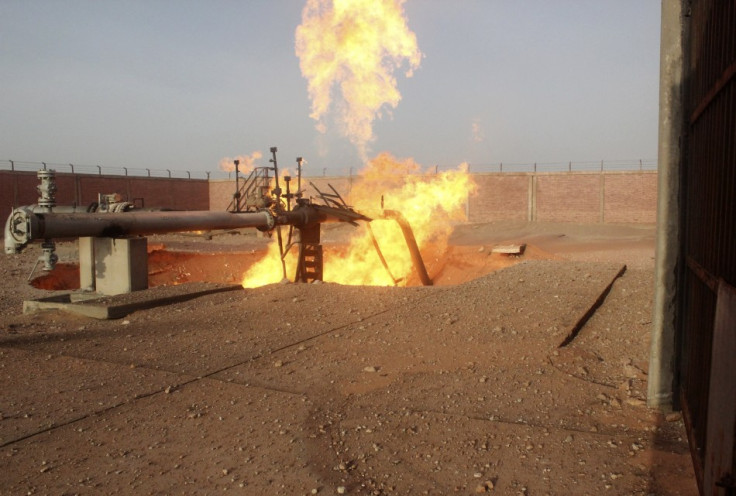Egypt Scrapped Gas Deal with Israel Because of Trade Dispute

Egypt's state-owned gas company's decision to cancel a deal to supply Israel with natural gas was not politically motivated, officials insist.
The decision by the Egyptian Natural Gas Holding Company(Egas) to terminate the 20-year contract was made following a business dispute with Israel and is not a politically motivated move, according to Hami Dahi, executive director of the Egyptian General Petroleum Corporation (EGPC).
The military council and government had no part in the decision to terminate the contract, he said.
Speaking to Al-Balad Al-Youm, a programme on Egypt's Sada Al-Balad television channel, Maj Gen Tariq El-Mahdy, former head of Egypt's Air Defence Forces and current governor of Egypt's New Valley region, concurred that the decision was not political.
"We should understand that there is no relation between the Camp David Accords and the gas deal with Israel," El-Mahdy said.
'Trade Dispute'
The news that Egypt had unilaterally decided to cancel the deal, which was signed in 2005 and provided 40 percent of Israel's natural gas, was announced by Ampal-American Israel Corporation, a partner in the East Mediterranean Gas Company (EMG). The company operates a cross-border pipeline supplying gas to Israel.
In a statement on its website, Ampal said EGPC and Egas had told EMG that they were "terminating the gas supply and purchase agreement".
"EMG [the pipeline operator] considers the termination attempt unlawful and in bad faith and, consequently, demanded its withdrawal," the statement said.
"EMG, Ampal and EMG's other international shareholders are considering their options and legal remedies as well as approaching the various governments," it added.
Egas chairman Mohamed Shoeib confirmed the decision, saying the deal had been terminated on 19 April.
He told Egypt's Al-Hayat TV: "Egas ended the deal because the other party didn't fulfil its commitments."
Sheib said the decision did not hold any diplomatic significance. "It is a trade dispute, not a political issue," he said.
The move follows a disagreement over explosive damage to the pipeline that carries the gas to Israel through the Sinai desert. There have been increasing acts of sabotage to the pipeline since the Egyptian uprising last year.
The deal was unpopular in Egypt because Israel was reported to buy the gas at below-market prices and many viewed it as a remnant of former president Hosni Mubarak's politics.
Mixed Reactions
Israeli foreign minister Avigdor Lieberman said having the contract scrapped was "not a good sign", but added: "to turn a business dispute into a diplomatic dispute would be a mistake".
Diplomatic officials in Jerusalem acknowledged that the decision was the result of a business dispute.
"In talks between Israeli and Egyptian diplomatic officials, it was made clear that the cancellation of the deal was part of a business dispute between a private company and Egyptian government companies - a dispute that is currently found in legal proceedings abroad," a diplomatic source told the Israeli daily Haaretz.
"This has nothing to do with the diplomatic relations between Israel and Egypt", the source added.
Israeli finance minister Yuval Steinitz, however, expressed "deep concern" over what he termed the "diplomatic and economic aspects" to the situation. "This is a dangerous precedent that diminishes the peace treaty [between the two countries]," he said.
Shaul Mofaz, leader of the opposition party Kadima, described the move on Israel Radio as a "blatant infringement of the peace treaty".
In contrast, independent candidates for Egyptian president applauded the deal being terminated.
Independent candidate Abdel Moneim Aboul Fotouh said: "The Egyptian people do not want to export gas to Israel and the president must act according to their wishes."
Hamdeen Sabahi, another independent presidential hopeful, addressed the issue on his Twitter account, where he wrote: "I hope this decision is permanent in order for Egypt to better guard its national resources."
© Copyright IBTimes 2025. All rights reserved.





















